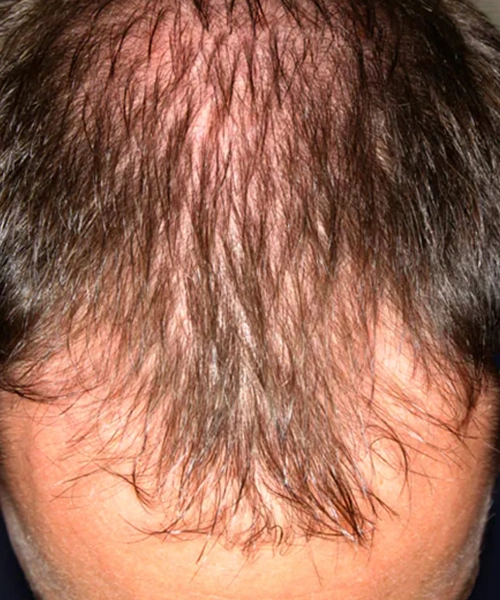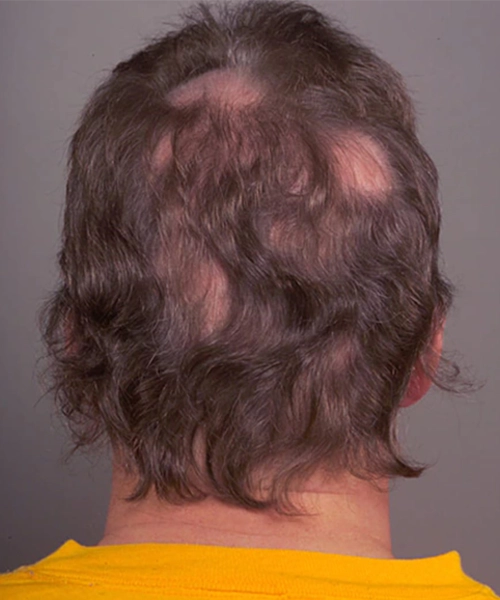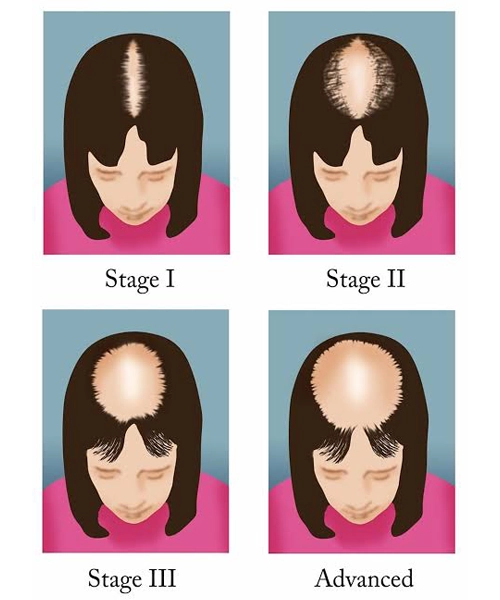.webp)
.png)
What We Do
We help you take control of your hairloss in a personalised, and scientific way.
.webp)
.png)
We help you take control of your hairloss in a personalised, and scientific way.
At Fidore, we specialise in identifying the root cause of hair loss. Our process is tried and tested, and the results speak for themselves -
FIDORE'S 100% money-back policy is valid only if you have been regular with the complete treatment plan for a period of 5 whole consecutive months. If any individual has not seen any regrowth or control in hair fall, you can ask for a refund. However, once you apply for the 5-month - money-back policy, the team would then do a thorough check on consumer regularity based on every order date. An exception to this policy is for those customers undergoing serious health conditions like autoimmune diseases and cancer.
Hair loss (alopecia) can affect just your scalp or your entire body, and it can be temporary or permanent. It can be the result of heredity, hormonal changes, medical conditions or a normal part of aging. Anyone can lose hair on their head, but it's more common in men.
Baldness typically refers to excessive hair loss from your scalp. Hereditary hair loss with age is the most common cause of baldness. Some people prefer to let their hair loss run its course untreated and unhidden. Others may cover it up with hairstyles, makeup, hats or scarves. And still others choose one of the treatments available to prevent further hair loss or restore growth.
People typically lose 50 to 100 hairs a day. This usually isn't noticeable because new hair is growing in at the same time. Hair loss occurs when new hair doesn't replace the hair that has fallen out.

 ALOPECIA ARETA
ALOPECIA ARETA FEMALE PATTERN BALDNESS
FEMALE PATTERN BALDNESS
Family history (heredity). The most common cause of hair loss is a hereditary condition that happens with aging. This condition is called androgenic alopecia, male-pattern baldness and female-pattern baldness. It usually occurs gradually and in predictable patterns — a receding hairline and bald spots in men and thinning hair along the crown of the scalp in women.
Hormonal changes and medical conditions. A variety of conditions can cause permanent or temporary hair loss, including hormonal changes due to pregnancy, childbirth, menopause and thyroid problems. Medical conditions include alopecia areata (al-o-PEE-she-uh ar-e-A-tuh), which is immune system related and causes patchy hair loss, scalp infections such as ringworm, and a hair-pulling disorder called trichotillomania (trik-o-til-o-MAY-nee-uh).
Medications and supplements. Hair loss can be a side effect of certain drugs, such as those used for cancer, arthritis, depression, heart problems, gout and high blood pressure.
Radiation therapy to the head. The hair may not grow back the same as it was before.
A very stressful event. Many people experience a general thinning of hair several months after a physical or emotional shock. This type of hair loss is temporary.
Hairstyles and treatments. Excessive hairstyling or hairstyles that pull your hair tight, such as pigtails or cornrows, can cause a type of hair loss called traction alopecia. Hot-oil hair treatments and permanents also can cause hair to fall out. If scarring occurs, hair loss could be permanent.
100% Ayurvedic Products 0% Chemical Usage